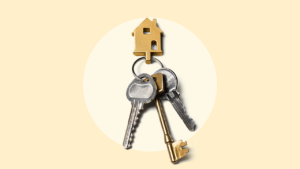What are mortgage liens?

Key takeaways
- A property lien can be either general or specific and voluntary or involuntary. A mortgage lien is a specific, voluntary lien.
- The priority of the liens on a property determines which debt will be repaid first in the event of default and foreclosure.
- The best way to avoid involuntary liens on your property is to make timely payments on the debts you owe.
What is a mortgage lien?
A mortgage lien is a legal claim to your property, which serves as collateral — or real security — for your mortgage. This means that if you default or stop making payments on your mortgage, the lien permits the lender to take possession of and sell your home to recoup the outstanding debt.
Although they sound negative, mortgage liens make homeownership possible for many people. As long as you pay your mortgage on time each month, the lien doesn’t keep you from selling your house or refinancing your mortgage.
How mortgage liens work
A lien is a claim that allows a creditor to seize and sell collateral (for example, your home) to pay off unsatisfied debt. In the case of a mortgage, the creditor is your lender.
While “mortgage” and “lien” are often used interchangeably, they are different. A mortgage is a loan that allows a borrower to buy a home over a period of time, receiving money upfront from a lender, then repaying those funds with interest.
Types of mortgage liens
Liens are mainly classified in two ways: as general or specific, and as voluntary or involuntary.
General liens vs. specific liens
General liens are less common than specific liens. The key difference:
- General liens: A general lien gives creditors the authority to seize a permissible possession if payment terms are not met. If someone fails to pay their federal income taxes, for example, the government can place a general lien on all of their assets, including their home.
- Specific liens: A specific lien is tied to a certain asset and typically used for larger loans, such as mortgages. If you get a mortgage for a vacation home, for instance, the lender will put a lien on that specific property, not on your primary residence.
Voluntary property liens vs. involuntary property liens
- Voluntary property liens: These are created through a mortgage agreement, in which you allow the lender to use the property as collateral in exchange for a loan.
- Involuntary property liens: These are liens placed without your consent, typically as a result of unpaid debts. If you cannot pay your property taxes, for example, your county or state tax authority might place a lien on the property.
Learn more: Can you sell a home with a lien on it?
Other types of property liens
Aside from mortgage liens, there are many different types of property liens, each with its own purpose and restrictions. These include:
- Property tax lien: Your state or local government can issue a property tax lien for unpaid property taxes.
- Federal tax lien: The IRS can place a lien on your property due to failure to pay your federal taxes. This lien can cover your personal property as well as other real estate assets, any vehicles and financial holdings.
- Homeowners association (HOA) lien: In most jurisdictions, your HOA can place a lien on your house if you do not pay your HOA fees.
- Mechanic’s lien: Contractors can place a lien on your home if you do not pay them for work they’ve done on your property.
- Judgment lien: In the event you lose a lawsuit, the plaintiff could file a judgment lien until you pay the money the court awarded to the plaintiff. Collectors of credit card debt, outstanding medical bills or personal loans might also secure a judgment lien against your property.
How do I remove an involuntary lien?
The presence of an involuntary lien won’t damage your credit score, but that doesn’t mean you should ignore it. Here are some ways to avoid or get rid of involuntary liens:
- Stay current on all payments due, or pay off the debt in full.
- Regularly monitor your credit to ensure there are no delinquencies that could translate to an involuntary lien.
- Request a payment plan from the tax authority or the lender if you’re having trouble making payments.
- Dispute it with the issuer if it’s an erroneous lien.
- Hire a lawyer to settle a disputed lien.
- File for bankruptcy, which automatically erases some liens, such as second mortgages (this should be an absolute last resort, however).
Those last two remedies can be costly, both financially and with respect to your credit. If you can’t afford to settle the lien debt, it might not be possible to retain an attorney to settle it, either. Likewise, bankruptcy comes with filing fees and — more importantly — harms your credit, which makes it that much harder to obtain a loan in the future.
Once you’ve arranged to remove an involuntary lien, there are usually some additional steps to finalize it. For example, if you’ve paid off your debt, you’ll have to get the lien holder to sign a release-of-lien form and submit it to your local government office. Depending on where you live, there might be a small fee for filing it. Your lender might also charge a reconveyance fee for removing the lien.
Mortgage lien FAQ
Why we ask for feedback Your feedback helps us improve our content and services. It takes less than a minute to complete.
Your responses are anonymous and will only be used for improving our website.
You may also like

What are reserves for a mortgage?



What is mortgage underwriting?



